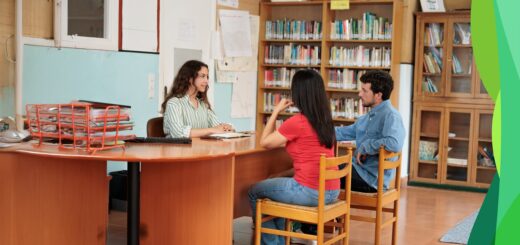What are the ways to support neurodivergent students in a CBSE school?
In a normal CBSE school most children can be taught easily in the classroom. However, there are cases of sensitive ones who require assistance. In a class full of vibrant learners there may be an odd kid who takes time to process everything: from the subject or organising things daily. These are neurodivergent kids who cannot interact on their own. Teaching neurodivergent students effectively is an art.
At the Siddhartha Public School Hyderabad, the campus supports kids of all sections and types. There are various ways to support neurodivergent students so they are never left out.
Let’s understand the values and teaching strategies for neurodivergent students in our school. Parents can join our efforts to make them relevant for better turned out children.
Students with neurodiversity in school
Our classrooms are vibrant spaces filled with a diverse range of learners. Among them are neurodivergent students, individuals whose brains process information and interact with the world in ways that differ from the typical.
This doesn’t make them any less capable – in fact, they often possess unique strengths and perspectives that enrich the learning environment. But sometimes, these differences can lead to challenges in traditional learning settings. We are committed to providing these exceptional students with the support they need to thrive.
Who are neurodiverse students?
Some common neurodivergence include conditions like Attention Deficit Hyperactivity Disorder (ADHD), Autism Spectrum Disorder (ASD), Dyslexia, Dyscalculia, and sensory processing issues.
Students with these conditions may face difficulties with focus, memory, social interaction, or processing sensory information. This can make studying, completing tasks, and keeping up with classmates a struggle. However, with the right support system in place, they can achieve academic success and develop strong social skills.
Creating a safe environment for sensitive kids
It is important for teachers, counsellors, support staff, and parents to work together to create a holistic support system for these students. Social skills development is crucial, as neurodivergent children might struggle with understanding cues, making friends, or accepting their own unique ways of learning.
They may experience challenges in daily functioning, dealing with frustration, and navigating social situations.
Teacher’s duty
Our teachers are trained to be sensitive to the needs of neurodivergent students. They go beyond observing behaviour and strive to understand the underlying challenges. We employ a variety of strategies to help them thrive. This includes validating their feelings and teaching them problem-solving skills. Visual aids, such as charts and diagrams, are used to enhance learning and retention.
Teachers create a supportive environment by:
Managing Anxiety and Sensory Overload
- Breathing exercises and relaxation techniques to manage anxiety and overwhelm.
- Noise-cancelling headphones can be offered to those with auditory sensitivities.
- Establishing a “safe space” – a familiar spot within the school where they can de-stress with a trusted adult.
- Allowing movement breaks – short periods for students to stretch or walk around the classroom to refocus.
- Providing fidget toys for those who benefit from tactile stimulation (age-appropriate of course!)
Organization and Planning
- Collaborative creation of daily schedules and organise study plans.
- Implementing a reward system to incentivize completing tasks and staying on track.
- Training to use planners and calendars effectively to manage their time better.
Building Social Skills
- Providing opportunities for social interaction in a safe and controlled environment.
- Role-playing social situations to understand social cues and communication styles.
- Encouraging inclusive activities that promote teamwork.
The support system doesn’t end at the school gates. Neurodivergent students may require continued social support once they re-enter a broader social environment outside of school.
Schools have a vital role to play in preparing them for this transition by creating proactive methods to help them interact and build relationships with their peers. We empower students to embrace their unique strengths and provide the tools they need to reach their full potential.
Siddhartha Public School Hyderabad can be really considered as the best school for neurodiverse students. We do not distinguish between our pupils, but we do know which one requires that ‘extra’ attention.





